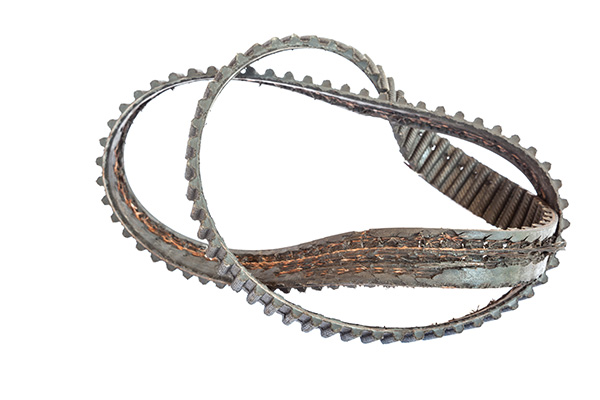
The timing belt is a crucial component in your vehicle's engine, yet it's often overlooked until it's too late. So, what really happens if you don't change your timing belt on time? Let's explore the potential consequences and why timely replacement is necessary for your car's health and your wallet.
The Role of the Timing Belt
The timing belt, also known as the cam belt, is responsible for synchronizing the rotation of the crankshaft and camshaft. This synchronization ensures that the engine's valves open and close at the correct times during each cylinder's intake and exhaust strokes. Without this precise timing, the engine wouldn't run smoothly, and serious damage could occur.
Immediate Consequences of a Failed Timing Belt
When a timing belt fails, it can cause catastrophic engine damage almost instantly. Unlike other car components that might show gradual wear, timing belts often fail suddenly, leaving you stranded without warning. If your timing belt snaps while driving, the valves can collide with the pistons, leading to bent valves, damaged pistons, and potentially a completely ruined engine.
Valve and Piston Damage
In interference engines, which are common in many modern cars, a failed timing belt means that the pistons will crash into the valves because there's no longer anything keeping them in sync. This collision can result in severe damage, including bent valves and cracked pistons. The repair costs for such damage can be exorbitant, often leading to complete engine rebuilds or replacements.
Cylinder Head Damage
The force of the valves and pistons colliding can also damage the cylinder head, leading to further costly repairs. The cylinder head is integral to the engine's function, and repairing or replacing it is a complex and expensive task. This kind of damage can leave you with a hefty repair bill, making timely timing belt replacement a much more economical choice.
Long-term Engine Performance Issues
Ignoring the timing belt replacement can also lead to long-term performance issues even if it doesn't fail outright. As the timing belt wears down, it can stretch or develop cracks. This wear can cause the engine's timing to become erratic, leading to poor performance, reduced fuel efficiency, and increased emissions. Your car might run rough, misfire, or struggle to start.
Decreased Fuel Efficiency
A worn timing belt can cause the engine to run inefficiently, resulting in decreased fuel economy. This inefficiency occurs because the engine's timing is off, which means it's not operating at its optimal level. Over time, this can add up to significant extra costs at the pump.
Increased Emissions
When the engine's timing is not precise, it can lead to incomplete combustion of fuel, increasing your vehicle's emissions. Not only is this harmful to the environment, but it can also cause your car to fail emissions tests, leading to fines and additional repair costs to get your vehicle compliant again.
Manufacturer's Recommendations
Manufacturers typically recommend replacing the timing belt between 60,000 to 100,000 miles, depending on the make and model of your vehicle. It's essential to consult your vehicle's owner's manual for the specific interval. Ignoring these recommendations can void warranties and lead to preventable engine damage.
Warranty Considerations
Failing to adhere to the recommended timing belt replacement schedule can void your car's warranty. Most warranties require regular maintenance as stipulated in the owner's manual. Skipping a crucial service like timing belt replacement can leave you without coverage if something goes wrong, leading to out-of-pocket expenses.
Service Intervals
Adhering to the service intervals for timing belt replacement is a proactive way to ensure your vehicle remains in good condition. Regular maintenance helps identify potential issues before they become major problems, saving you time and money in the long run.
Signs Your Timing Belt Needs Attention
While timing belts can fail without warning, there are some signs that might indicate it's time for a replacement. Listening and paying attention to these signals can prevent a sudden breakdown.
Unusual Noises
One common sign of a worn timing belt is a ticking noise coming from the engine. This noise is caused by the belt struggling to maintain proper tension and should be inspected immediately by a professional.
Engine Misfires
A failing timing belt can cause the engine to misfire due to the valves opening and closing at incorrect intervals. If you notice your engine running rough or misfiring, it's time to have your timing belt checked.
Oil Leaks
Oil leaks from the front of the motor can indicate a problem with the timing belt cover or the belt itself. Oil can deteriorate the timing belt, causing it to weaken and eventually fail. Addressing oil leaks promptly can prevent timing belt damage and extend its lifespan.
Protect your vehicle from costly repairs. Contact Snider Auto Care now to book your timing belt service and ensure your car's longevity.